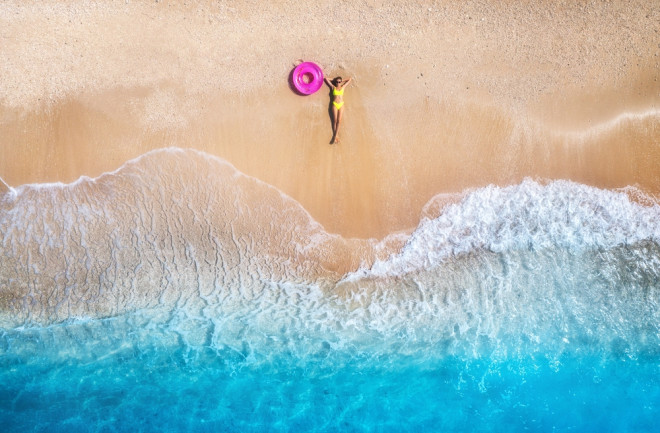American writer and activist Rebecca Solnit once described blue as “the color of where you are not.” In the context of sparkling oceanic horizons or cloudless summer skies, you might add that it’s where many of us want to be — especially when water is involved.
Whether we’re talking Caribbean Sea, alpine lakes and rivers or a simple fountain in a park, there’s something magnetic about water. The human psyche, generally speaking, is drawn to it.
Just consider the trend of cities and towns: Many of them are built up around rivers or oceans. Similarly, you can bet that water is a dominant theme in just about any list of top vacation destinations and experiences.
Some limited research suggests that not only is it practical and essential for human survival, but water also draws in humans, captivates our attention and influences our behavior in some unexpected ways.
This psychological connection seems quite ancient and primal. An ecologist, Wallace J. Nichols, even wrote a 2014 best-seller, Blue Mind, that explores this idea.
Basic Human Need
For starters, let’s cue the obvious: Unless you’re an AI system reading this story, you are mostly made of water.
By weight, estimates suggest that roughly 60 percent of the typical adult human body is H20.
As such, most humans can survive only a few days without consuming the wet stuff. To meet this need, our ancient ancestors (and their ancient cousins before them, all the way back to a fish) likely lived or died based on their ability to detect a clean drinking source.
In some events and circumstances, a tiny trickling spring would suffice. Larger bodies of fresh water, of course, provided a constant, reliable supply, which also supported other aspects of human civilization.
So it’s no wonder why human camps, forts and villages — which often became large cities — anchored themselves to water.
Read More: 5 Ancient Societies that Collapsed When the Water Ran Dry
Reverence for Water
In 2010, a team of U.K. researchers probed the human preference for water in both natural and built environmental scenes.
That is, they evaluated how people responded to both images and real physical spaces based on the presence or omission (and quantity) of water. That study revealed that both natural and built aquatic scenes are associated with higher preferences, greater positive effects and higher perceived restorative properties than those without it.
The researchers speculated that the long-term evolutionary need is connected to the “the reverence of water,” adding that, “Early humans attracted to aquatic environments with supplies of fresh water may have been more likely to survive than those attracted to non-aquatic environments.”
Why 'Glossy' Lures Us
Incidentally, in 2013, another team of researchers published a fascinating study revolving around why humans prefer glossy textures and visuals.
While the research was aimed at consumer behavior and marketing items like jewelry and handbags, these findings also led the team to water — as it relates to evolutionary psychology.
They concluded that our innate need for fresh water, which often has a glossy, reflective sheen, might explain why we love shiny things. Or, put another way: People like glossy textures because it reminds them of wetness.
Among the evidence, one of the tests in their study involved feeding salty crackers to some participants while they ranked how much they liked particular glossy images presented to them. A control group also responded to the same images, without eating salty crackers.
As predicted, those who ate crackers — and became more thirsty — seemed more drawn to the glossy images. “When people are thirsty their preference for glossy increases,” the researchers wrote in the study.
Real Estate and Water
Beyond human physiology, a thirst for water also seems to permeate real estate and commercial development preferences (not to mention commodity selections in modern investment portfolios).
As a simple demonstration of this, just try searching Airbnb listings in a city near the ocean or a big lake, and notice rental prices. In many instances, you will see higher prices for any accommodations advertising a waterfront view.
Back in 2000, Joke Luttik, a researcher of economics and social sciences, published some hard data behind this trend in the Netherlands.
Specifically, she evaluated nearly 3,000 house sales in eight towns or regions across the Netherlands and estimated the effect that environmental elements had on the price.
Overall, the research revealed that a home overlooking water correlated with an 8 to 10 percent increase in sale price.
Interestingly, in some instances that increase jumped all the way to 28 percent when paired with a garden facing a sizable lake. This, perhaps, aligns with other research that suggests people are drawn to lush and green environments because it, too, indicates an abundance of water.
Read More: Yes, People Are Now Trading and Investing in Water as a Commodity
